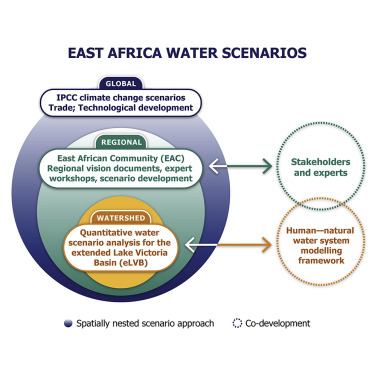Urban regions in sub-Saharan Africa are growing significantly more rapid than their also growing rural counterparts. However, the employment perspectives in rural areas are decreasing, and thus the urban growth can become a driver for enhanced livelihoods in the rural areas.
Background: Community-based active case-finding interventions might identify and treat more people with tuberculosis disease than standard case detection. We aimed to assess whether active case-finding interventions can affect tuberculosis epidemiology in the wider community.
Diseases of the Nervous System (Second Edition), 2021, Pages 81-107
This book chapter advances SDG #3 and #10 by introducing the basic foundation of aging, dementia and Alzheimer Disease, including clinical presentation, diagnosis and epidemiology.
Global evidence suggests that maternal vaccination rates are partly related to intersectional gender-related disparities. Kenya recently eliminated maternal and neonatal tetanus, but previously had low rates of tetanus vaccination in many districts. Examining both national data and gender-responsive language in policies can potentially illuminate this progress.
This paper investigated the ways in which air pollution can be reduced through enhanced environmental sustainability by looking at groundwater, soil and stream sediment samples.
This study identifies the psychosocial factors of stigma and relationship to healthcare services among adolescents living with HIV/AIDS in Kano state, Nigeria.
The need to assess major infrastructure performance under a changing climate is widely recognized yet rarely practiced, particularly in rapidly growing African economies. Here, we consider high-stakes investments across the water, energy, and food sectors for two major river basins in a climate transition zone in Africa. We integrate detailed interpretation of observed and modeled climate-system behavior with hydrological modeling and decision-relevant performance metrics.
Food insecurity caused by climate change has become one of the main issues on the global agenda. Worldwide, the importance of digital tools as a means to enhance adaptive capacity and resilience of smallholder farmers (SHFs) in the face of climate variability has long been recognised. Technology-based systems in agriculture frequently neglect to consider the actual context of use and adoption by SHFs in rural and developing contexts.
Anthropogenic activity is a major driver of seabird injury and mortality in the 21st century. Although most seabirds perish within the natural environment as a result of human activities, some are rescued and admitted to rehabilitation centres. Despite the considerable number of admissions, little is known regarding the physiological response seabirds have to specific admission reasons and the rehabilitation process.
A hydro-economic assessment of the headwaters of the Nile River revealed the upstream-downstream linkages and interconnections among socio-economic development, climate change, and the environment.

